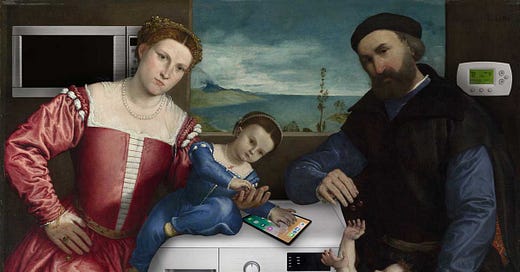
We spend a lot of time reporting on what’s broken here at The Free Press. In our government. In our politics. In our culture. But sometimes it’s worth appreciating what works. And how it works. That’s the idea behind a new series, “How the System Works,” published by The New Atlantis, a great magazine about science, tech, and ideas.
“Too many of us know next to nothing about the systems that undergird our lives,” writes the author of the series, Charles C. Mann, in his introductory essay, which we’re reprinting below. The mechanisms that deliver food, electricity, healthcare, and clean water to billions are “the cathedrals of our secular era.”
And yet we take them for granted. That’s complacent, argues Charles. Fail to appreciate and understand these systems and we’ll fail to maintain and preserve them. Read more on how we came to live like kings—and why it matters—below. —The Editors
At the rehearsal dinner I began thinking about Thomas Jefferson’s ink. My wife and I were at a fancy destination wedding on a faraway island in the Pacific Northwest. Around us were musicians, catered food, a full bar, and chandeliers, all set against a superb ocean sunset. Not for the first time, I was thinking about how amazing it is that relatively ordinary middle-class Americans could afford such events—on special occasions, at least.
My wife and I were at a tableful of smart, well-educated twentysomethings—friends of the bride and groom. The wedding, with all its hope and aspiration, had put them in mind of the future. As young people should, they wanted to help make that future bright. There was so much to do! They wanted the hungry to be fed, the thirsty to have water, the poor to have light, the sick to be well.
But when I mentioned how remarkable it was that 100-plus people could parachute into a remote, unfamiliar place and eat a gourmet meal untroubled by fears for their health and comfort, they were surprised. The heroic systems required to bring all the elements of their dinner to these tables by the sea were invisible to them. Despite their fine education, they knew little about the mechanisms of today’s food, water, energy, and public health systems. They wanted a better world, but they didn’t know how this one worked.
This is not a statement about Kids These Days so much as about Most People These Days. Too many of us know next to nothing about the systems that undergird our lives. Which is what put me in mind of Thomas Jefferson and his ink.




